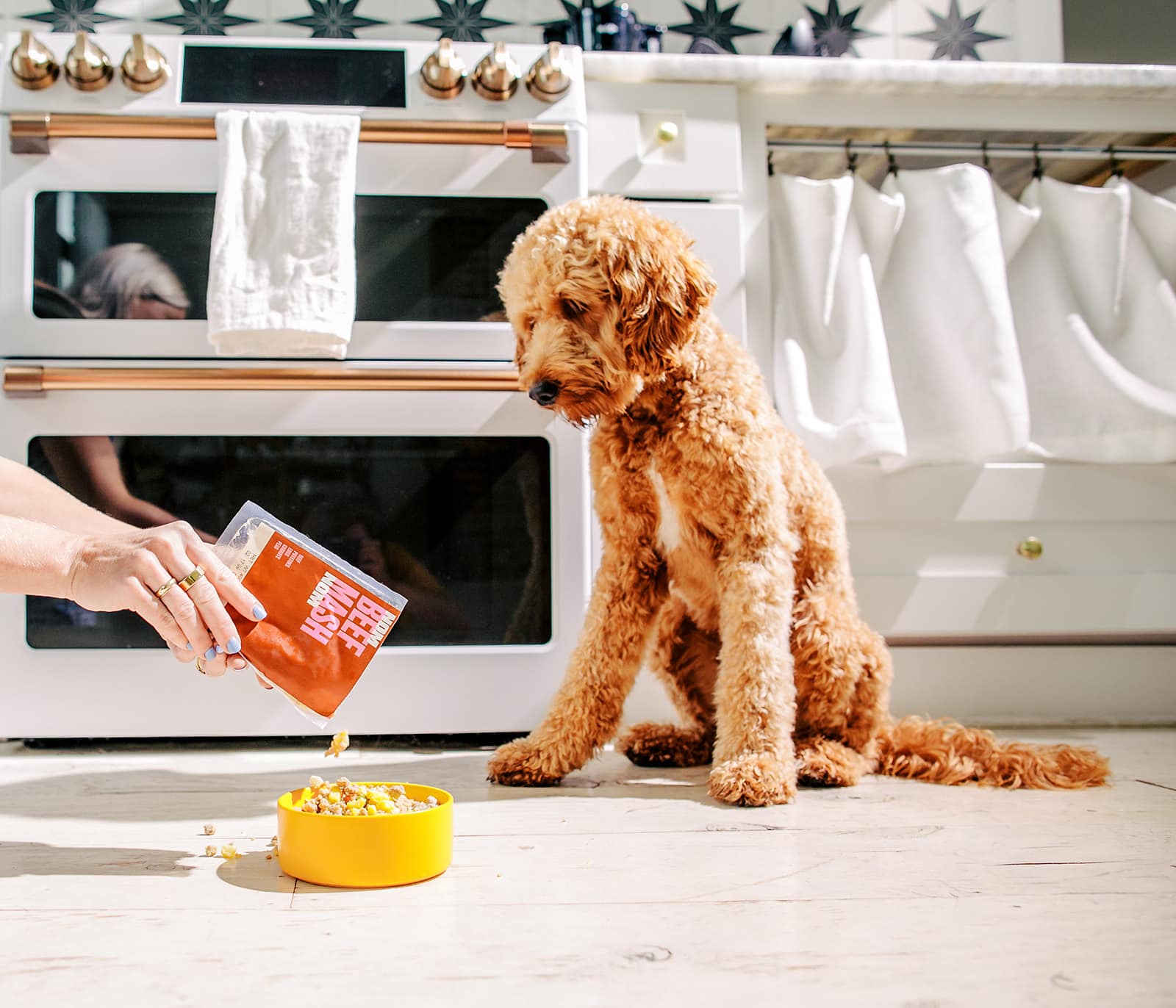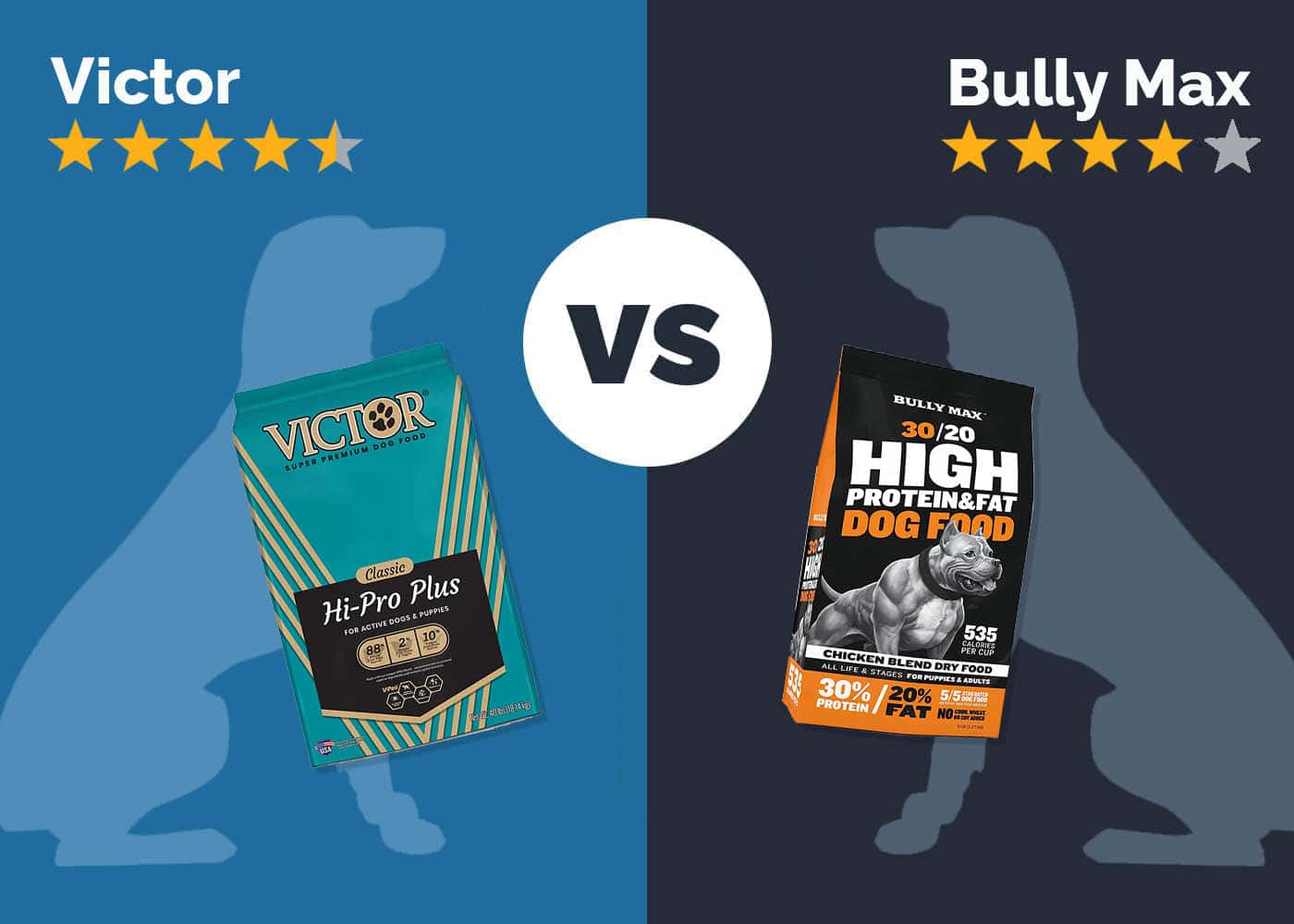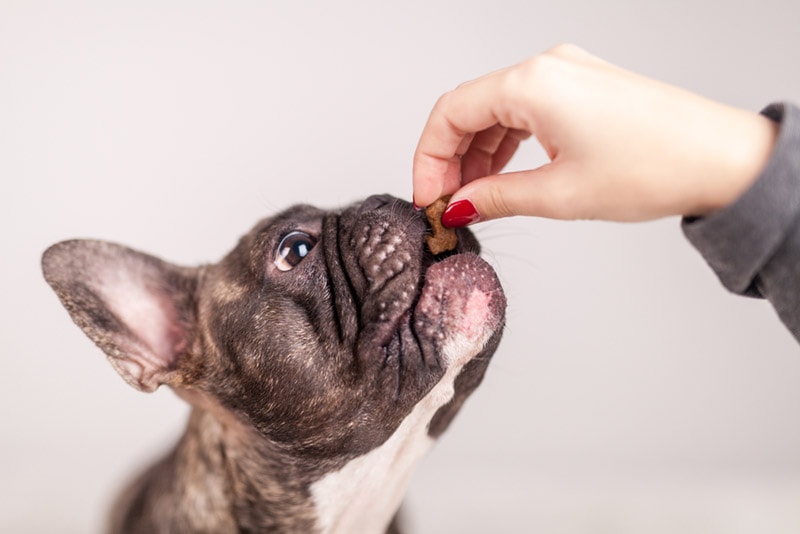Will High Protein Dog Food Cause Diarrhea? Vet-Approved Precautions & FAQ
Updated on
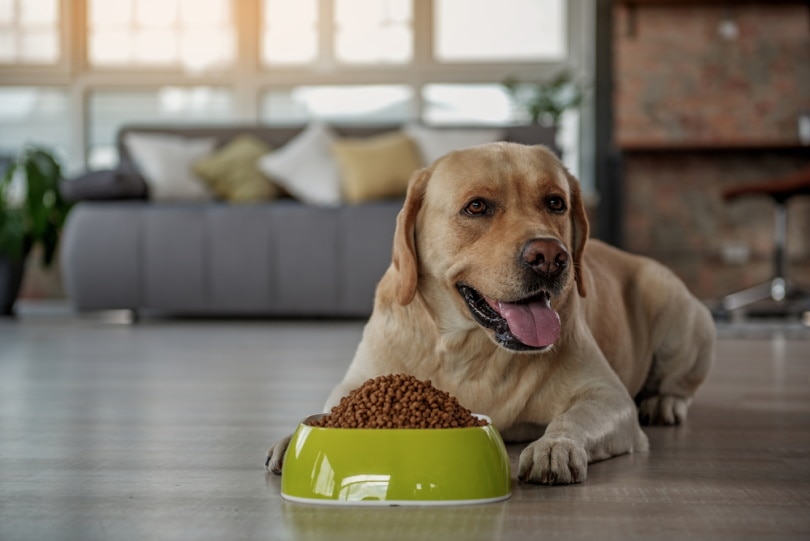
Click to Skip Ahead
High-protein dog foods can be a healthy option for many dogs that require them, but it’s not ideal for every dog and can cause diarrhea and weight gain. In this post, we’re unveiling dog nutrition and high-protein diets so you can choose the best dog food for your furry best friend. First, let’s start with the basics.
Dogs Are Omnivores, Not Carnivores
While carnivores (such as cats) survive and thrive on a diet that consists of at least 50% meat, omnivores thrive best on a diet of both plant and animal matter. These animals rely on no more than 30% protein in their diets. The rest of their diets come from plants, algae, and fungi.
And this is where dog owners run into trouble. Contrary to popular belief, dogs are actually omnivores. They don’t need as much protein as we think. In fact, some dogs can survive on a vegetarian diet as long as it’s properly balanced. But if you want your dog to thrive, offering an animal source of protein is best.
However, an all-meat diet can cause nutritional deficiencies because dogs can’t obtain enough vitamins, minerals, carbohydrates, fats, and protein from meat alone.
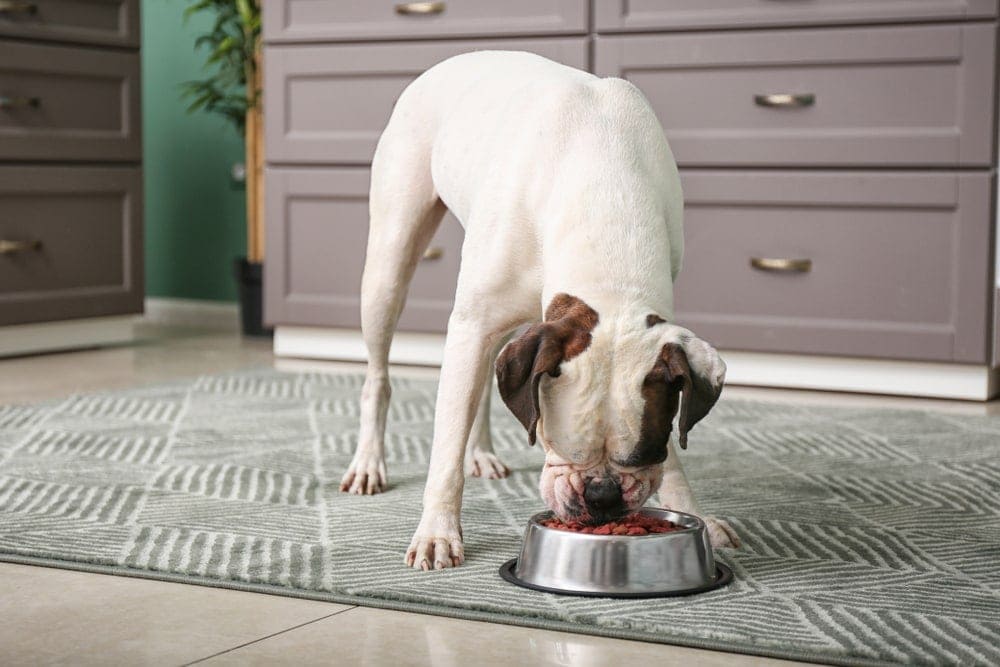
How Much Protein Should a Dog Get?
How much protein a dog needs depends on the dog’s age, weight, activity level, and whether or not the dog is nursing or pregnant.
Truthfully, the only way to know if your dog is getting enough protein is to speak with your veterinarian. Your veterinarian can help set an ideal goal to reach for. But generally speaking, dogs need at least 18% crude protein on a dry matter basis for proper nourishment. Puppy food or food for nursing dogs needs at least 22.5% crude protein on a dry matter basis.
Commercial dog foods will meet this minimum standard but can choose to include more protein in their recipes if they wish. The best dog foods will focus on protein quality instead of quantity. The great thing about dogs is that since they’re omnivores, they benefit from protein sources of meat and plants.
High-quality protein sources will be easy for your dog to digest. This is much better than having several protein sources that are hard on your dog’s GI tract. Good protein sources for dogs include:
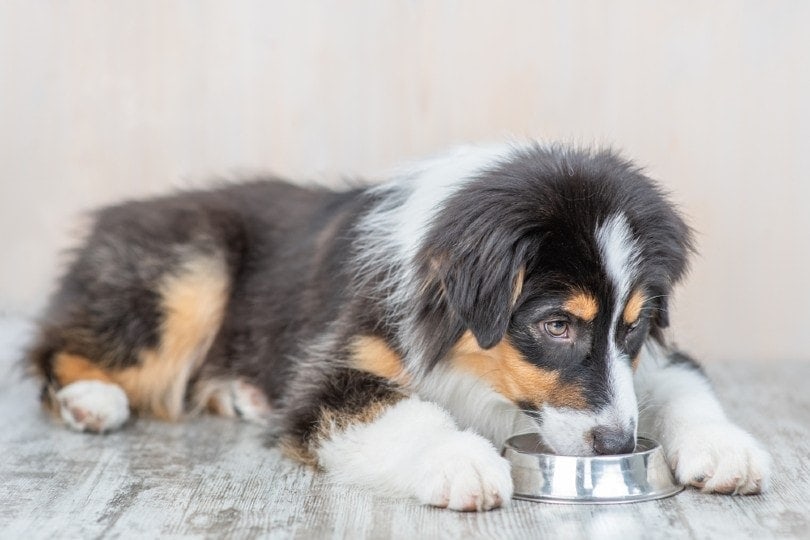
- Eggs
- Fish
- Fish meal
- Poultry
- Venison
- Red meat
- Organ meat (kidney, heart, liver, etc.)
- Chickpeas
- Lentils
- Peas
Dogs That Benefit From a High-Protein Diet
So, are high-protein diets bad? Not at all. Some dogs do very well on a high-protein diet. However, there are some dogs that benefit from it.
- Dogs That Need Weight Management: A high-protein diet can cause a dog to lose or gain weight. It depends on the protein quality and calorie content. High-calorie, high-protein diets are good options for underweight dogs. Low-calorie, high-protein diets help a dog lose weight.
- Puppies: Puppies burn hundreds of calories a day. Their bodies are also developing, so they do best on high-protein diets for the amino acids.
- Senior Dogs: As dogs age, they need help maintaining a good body condition. High-protein diets can help muscle development and keep joints healthy.
- Canine Athletes: Like puppies, canine athletes build muscle and break down muscle protein quickly. So, they require a high-protein diet so the amino acids can help build muscle.
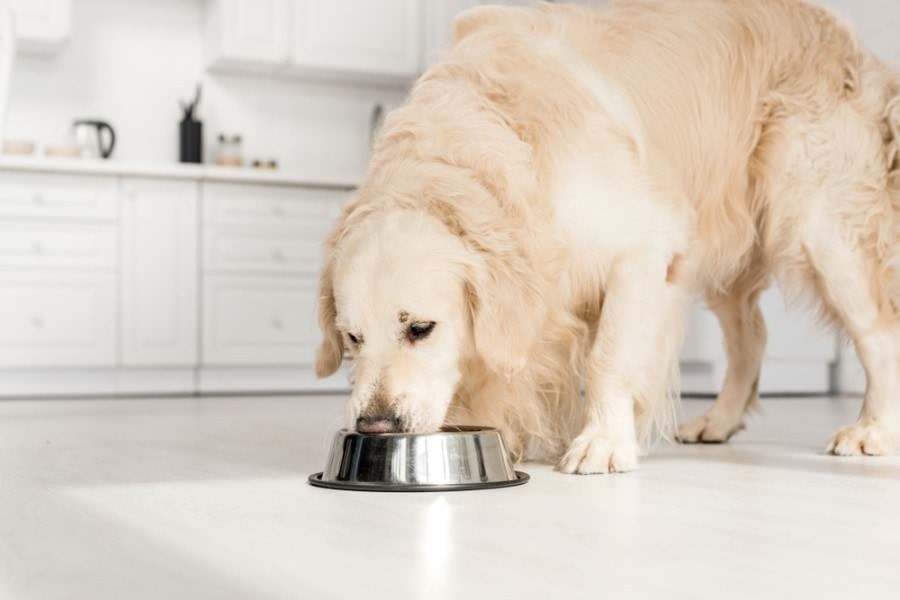
Conclusion
Finding good dog food is not an easy task. Every dog is different and has different nutritional requirements. We tell our readers to find dog food that suits your dog’s lifestyle, age, and size. And a high-protein diet could fit the bill! Some dogs do very well on a high-protein diet. But if your dog is having diarrhea, it might be time to re-evaluate your dog’s food.
If you’re not sure if a high-protein diet is right for your dog, talk to your veterinarian. Your vet will be happy to work out a plan to help your dog live its best life.
Featured Image Credit: Olena Yakobchuk, Shutterstock


